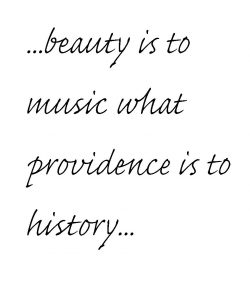Why the Fascination with Providence?

Winning
When I was a kid, living in America felt like life was improving by leaps. I don’t know what the polls were saying back then. But my memory of days was “winning” was indeed so commonplace that, as the president would have it, there would actually be such a thing as winning fatigue. There was the miracle win over Polio—a drop of red stuff on a sugar cube. Every year brought new automobile models. Television turned to color. Suddenly a man was walking on the moon. It appeared that paradise would arrive like an on-time train about the time I graduated from college. But then came a parade of losses—the JFK assassination, Vietnam, and the 1965 Watts riots—and suddenly we became the passengers on the wrong bus, looking out the window with worried looks on our faces.
Optimism Isn’t Cool

Church and faith are supposedly committed to an idea that there is a benevolent hand directing history. The 4th century North African thinker, Aurelius Augustine, thought that providence is to history what beauty is to music. Augustine was an early adopter of the idea of providence as we understand it today. Providence threads through the history of Christian faith. It was a particularly vital idea among the Calvinist separatist Puritans who were significant leaders in the founding of the United States. But the idea of Providence seems quaint in today’s church. Enthusiasm for what is going on outside church doors feels to today’s ministers like canary-chirping optimism that would be ridiculed as beyond naïve in this generation. Even preaching and teaching is preoccupied with problems as opposed to the confidence that God’s purposes are ever working out.
We Don’t Notice Good News
Several years ago I did a Google research on an array of indicators of world well-being. I learned that world poverty is down, cancer survival rates have improved, wars are less numerous, and so on. I compiled my findings into a luncheon talk about how the condition of humanity was actually improving. The talk was an eye-opener for the audience where felt heartened. One audience member, a newspaper executive, insisted that I publish my little talk on her opinion page. Normally, I would have been flattered. On this occasion, I worried that readers would laugh at me for being so naïve as to think that worldwide quality of life was actually improving. It took guts to venture outside of fashionable despondency.

A core assumption of much conservative politics is that history is headed in the wrong direction. William F. Buckley’s remark that, “A conservative is someone who stands athwart history, yelling Stop” still appears to be the animating principle of the political right. The arch-rightwing thinker, Richard Spencer, has made into a compelling call to action the idea that Western European (White) heritage is currently like a campfire that has had bucket after bucket of water poured on it. It is now smoking cold mush. But there is one glowing ember left. That last spark is the characters who don swastikas and confederate emblems and march around. There’s no beautiful future for that crowd. Their orientation is decidedly backwards to a mythic time of the founders. Again we see this assumption that what lies ahead is disastrous.
One last distressing factoid—the misery of working class families in America’s industrial heartland. I’m talking about the financially squeezed, early dying, more self-destructive and addicted population that seems to be suffering from an adult version of failure to thrive. Add to this the uptick in young adults seeking treatment for depression and the opioid situation. To state it in common parlance. A lot of people right now don’t have much to look forward to.
We Need a Fresh Appreciation of God’s Providence
I realize that this may seem disheartening to the reader. Be assured, I’m still writing about the music of history. I’m certain that a deeper acquaintance with the God who is ever guiding, provisioning, and sustaining all things would be a very refreshing in our moment in history. Providence needs to join the line-up of messages emanating from the Christian community. Because…there’s gold there.
And here’s my personal problem. I am not sufficiently acquainted with or confident about how God manages the big operation of history to offer forceful pushback to the drift towards generalized discouragement.
The Gold is There
But I keep getting glimpses of the gold. For example, as I look backward over my personal experiences, I really can’t account for my life’s course apart from the Wise Hand that has always been steering my course. All of the big pieces of my personal story—what my mom and dad gave and taught, what I studied, my wife and daughters, the three church situations that I spent my career in, and now even the circumstances of my retirement. All of these things feel more like gifts than accomplishments.

I don’t think I’m special. I’m guessing that most of this post’s readers have reached the same conclusion. We look over the path we’ve taken and realize that there is a beautiful quality to our years that is more than just the result of one’s smarts and hard work. It’s more than good luck or inevitability. In other words, we have just enough personal acquaintance with providence to start us down a path of understanding how the same provisioning includes the whole world. That is cause for hope.
I also have become convinced that the Christian congregations have not yet, nor are they capable of, receiving and enjoying the whole package of what God is giving. Wouldn’t you think that I would know more about the subject of providence after years of seminary training and 40 years of weekly preaching and teaching? And I think the areas of Christian hope, the working out of all things to fulfill God’s purposes, the whole theological world of consummation are ripe for rediscovery. I want to rediscover it.

